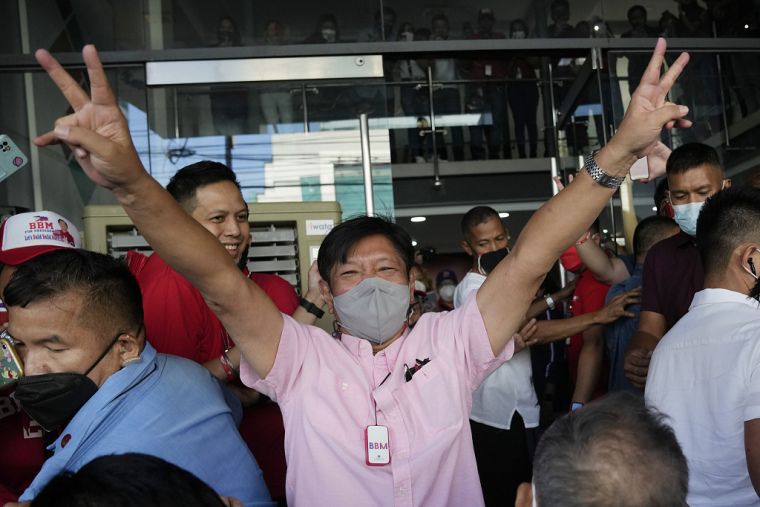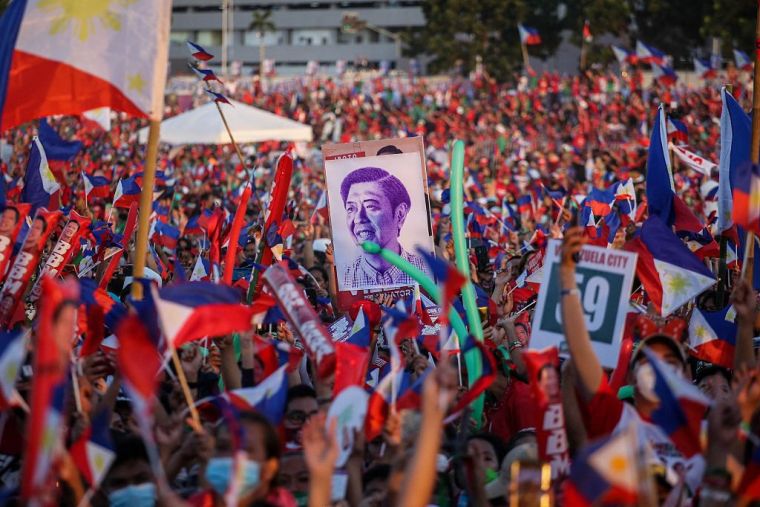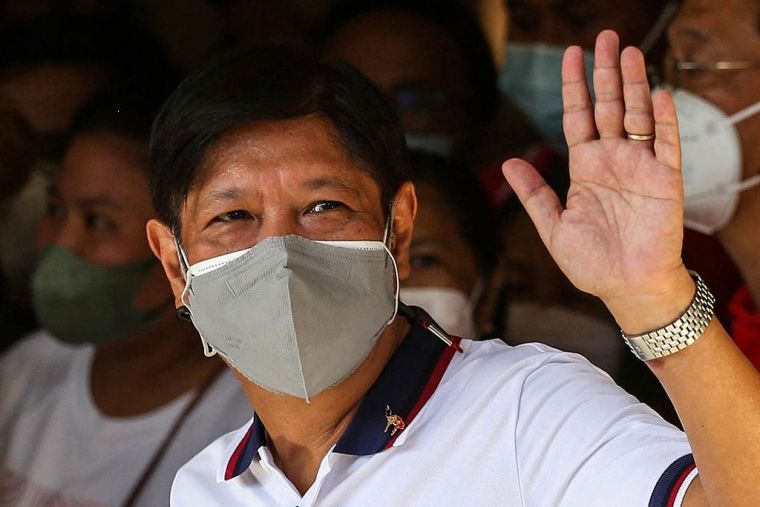After winning the presidential election, where will Marcos take the Philippines' China policy?
According to preliminary statistics released by Philippine media on the 10th, among more than 96% of the votes that have been counted, Marcos, the son of former Philippine President Ferdinand Marcos, has won more than 30 million votes, with a vote rate of over 50%, winning the President election. His partner Sarah, the daughter of Philippine President Duterte, won the vice-presidential election.
Although the final results are expected to be officially announced on June 3 after confirmation by the Election Commission and Congress, Marcos said in a "national address" after the preliminary results were announced that he "can't wait" to express his gratitude to his supporters and hopes that his supporters continue to trust him.

According to the Philippine "Daily Inquirer" website, Marcos said in his speech, "Even if the count is not over yet, I can't wait to express my gratitude to all of you. I thank everyone who has helped us, thank you for your sacrifice, for the work, time and skill you put in." He also said that the support from the public was the most important thing he got in his presidential campaign.
The comeback of a political albatross
Born in 1957, Ferdinand Marcos Jr. is the only son of former Philippine President Ferdinand Marcos and his wife Imelda. Marcos was elected governor of his home province of Ilocos Norte, a member of the House of Representatives and a senator. He tried to run for vice president in 2016, but lost by a narrow margin.
Being accused of corruption and dictatorship, Marcos' father was forced to go into exile in the United States due to mass protests during his tenure. Since Marcos entered politics, he has been labeled as the son of a "dictator", and finding fault with his origin and family has almost become a "traditional means" to suppress him.
However, some observers pointed out that judging from this election, most of the people, especially the younger generation, did not pay too much attention to his family history, but instead placed their hopes on Marcos to lead the country's economic recovery.

According to data, there are 67.5 million registered voters in this general election, accounting for 60% of the total population, of which the total number of young voters aged 18 to 41 exceeds that of the elderly for the first time, reaching 54.4%. And Marcos has an overwhelming support rate in all age groups, especially among the younger generation, far exceeding other candidates.
According to the Global Times, most of the working-class people support Marcos. A taxi driver said that the golden age of Philippine economic development occurred during the tenure of Marcos Sr. and that he supports Marcos in the hope that he can restore economic growth in the Philippines and help ordinary people to find jobs.
According to Philippine polls, the top three topics in this general election are the economy, anti-corruption, and the COVID-19 pandemic, all of which belong to internal affairs, and Marcos's campaign strategy also focuses on internal affairs, which may be the reason he won the hearts of the people.
The victory of a "Sinophile"?
When reporting on the Philippine presidential election, The New York Times said that the election will shape the country's "very fragile democratic direction and change its relationship with the United States and China."
As the eldest daughter of the Philippine incumbent president Duterte who has always been friendly to China, Sarah is also running for vice president with Marcos this time. Therefore, since the beginning of the Philippine presidential election, there has been hype about the “Marcos & Sarah team” being Sinophile.

According to the analysis on the website of Singapore's "Nanyang Review", these speculations are aimed at creating anti-China sentiment and making Filipino voters unknowingly use "tough on China" as a criterion to measure candidates. According to the preliminary results of the current election, this strategy does not seem to have worked.
Regarding the future foreign policy of the Philippines, Marcos once said in a pre-election event that "make friends with everyone, and don't quarrel with anyone."
The Manila Times said that avoiding military entanglements in the South China Sea and maintaining a non-confrontational state are the cornerstones of Marcos' China policy. In January of this year, Marcos also said that Duterte's approach to China is the only option for the Philippines, and that he will implement an independent foreign policy like Duterte.
However, some observers pointed out that there may be some subtle differences in the policies of the Philippine president and the military towards China.
The Philippine military and strategists have always taken a tough stance on China and have recently gradually resumed defense cooperation with the United States. On March 28, the US-Philippines "side by side" joint military exercise, known as the "largest in 30 years", was held on Luzon Island. Recently, the Philippines and Japan also conducted the first "2+2" dialogue to strengthen defense and strategic cooperation.
But in fact, U.S. defense assistance to the Philippines has been lip service , which is part of the reason why Duterte has repeatedly tried to rescind the U.S.-Philippines Visiting Forces Agreement. Observers pointed out that the good China-Philippines relationship is President Duterte's legacy to his successor, and under the theme of close cooperation between China and the Philippines, Marcos will also make a wise choice.














